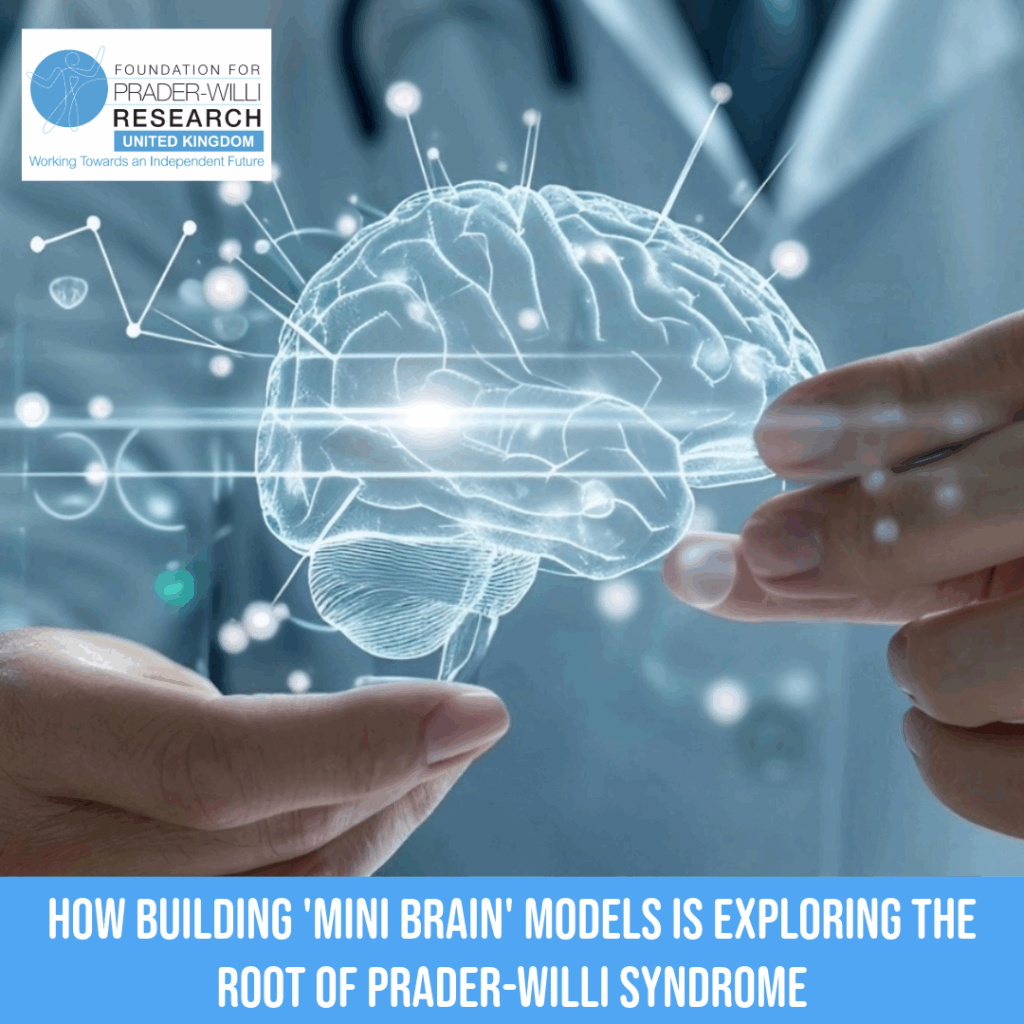
Scientists believe that in Prader-Willi Syndrome (PWS), one part of the brain — the hypothalamus — doesn’t work quite as it should. This tiny but powerful region helps control hunger, hormones, body temperature, and more. When it’s not working properly, it can lead to many of the challenges we see in PWS, like constant hunger, hormone imbalances, and difficulties with growth and development.
Dr. Derek Tai and his team are doing something incredible to understand why this happens: they’re growing tiny, 3D versions of the hypothalamus in the lab using special stem cells from people with PWS. These “mini-brains” let scientists watch how brain cells grow and develop — and what goes wrong when key genes are missing.
By comparing these lab-grown hypothalamuses to healthy ones, the team hopes to:
· Discover which genes and brain cells are most affected in PWS
· Understand how these changes lead to symptoms like hyperphagia and hormone issues
· Test ways to “rescue” or fix the problems at a cellular level
This is such an exciting project which shows the power and progress of science to allow Dr Tai and his team to view PWS in this special way. Hopefully the findings of this study will create new avenues to discover methods to treat PWS and improve the quality of live of everyone affected.